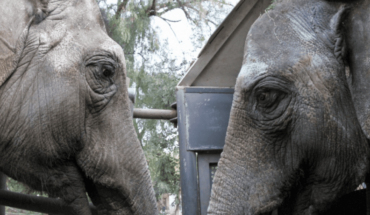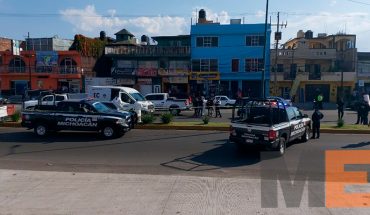Elena Álvarez-Buylla, general director of Conacyt, defended the attorney general, Alejandro Gertz Manero, before the National Council to Prevent Discrimination (Conapred) by claiming that “irregularities and human rights violations were committed” against him during the 11 years in which he was denied entry to the National System of Investigators (SNI), the system of incentives for the country’s most prolific researchers.
In addition, he said, there were other cases where applicants did not meet all the requirements of the SNI regulations or were given exceptions and were still accepted, while Gertz was rejected for not “objectively and impartially assessing” the prosecutor’s work.
Read: Gertz Manero entered the SNI as ‘reparation of damage’ for discriminatory acts: Conacyt
These assertions are contained in letter A0000/049/2020 signed by Elena Álvarez Buylla addressed to Conapred and which served as an argument to confirm that the alleged “subjective evaluation” applied to Gertz Manero, was recognized by the institution itself – in the voice of its owner – in accordance with conapred’s complaint resolution 01/2020.
“Cases have been identified where applicants did not meet all the requirements required by the regulations and yet they were granted recognition or received it through the application of unfounded exceptions,” Alvarez-Buylla said in the letter.
This is part of the process in which the head of the Attorney General’s Office (FGR) obtained the appointment as an investigator of the SNI in the current administration, after having tried since 2010 and having been rejected five times by Conacyt considering that he had an “insufficient scientific production” and did not demonstrate “a productivity for the generation and transmission of new knowledge”, as established by the regulation.
However, Gertz filed appeals in Federal Courts since 2011 claiming that the refusal was not “properly substantiated” and even filed a complaint with Conapred in 2015 for allegedly being a victim of discriminatory acts.
This complaint was admitted until 2020 by Conapred and resolved on August 28 of that year, weeks after the body was left without a head following the resignation of Monica Maccise in June. The resolution determined a “differential treatment” against Gerz Manero, so it instructed Conacyt to evaluate the prosecutor again.
It was thus that Conacyt decided to create a special commission, not provided for in the regulation, to analyze only the case of Gertz Manero, and this, thanks to a legal interpretation “ex profeso” based on the criterion “pro persona”, that is, choosing the rule that provides the greatest benefit to the complainant, determined not only the admission of Gertz to the SNI, but also to grant him level III, the highest recognition.
According to conapred’s resolution that was published on its website only this Monday, although it was resolved in August 2020 and has the legal obligation to make its resolutions public, the statements of the director of Conacyt served to “fully accredit” the discretion in gertz’s evaluation.
This evaluation is carried out by “peers”, that is, by level III researchers corresponding to each area of knowledge through Advisory Commissions, composed of 15 people in an honorary way, and both their performance and the requirements that the applicants must meet are provided for in a regulation.
But director Álvarez Buylla said that “an arbitrary exercise of the evaluation functions has been detected, as well as partiality and lack of objectivity on the part of the evaluators when applying the evaluation criteria provided for in the regulations, which generates uncertainty among the applicants and can lead to the updating of discriminatory practices.”
Although she herself was evaluated under these standards, since 2001 she obtained the appointment of researcher of the SNI level III due to her research work in Systems Biology at the Institute of Ecology of the UNAM and that includes, among other things, 162 international articles indexed, 7 books, 29 chapters of international books, a computer program for studies of natural and managed populations, used by hundreds of users worldwide and 10,592 citations to her work.
Meanwhile Gertz presented two books and newspaper columns, in addition to articles and biographies, but Conacyt determined that “the applicant did not demonstrate an integral productivity within the activities that define the scientific and technological work, oriented to the generation, application and transmission of new knowledge”, and “it is not accredited that the applicant performs habitually and ifscientific research activities.
Álvarez-Buylla considered that the evaluation of the prosecutor seems “not to have evaluated in an objective and impartial way the production and academic and scientific trajectory of the applicant. The conclusion and the reasons set out in the letters were not properly justified or duly substantiated and motivated by the evaluators, as the judicial authorities made clear at the time.”
Another aspect of controversy is that the regulation of the SNI raises as a requirement to have directed theses, as also confirmed by the legal area of Conacyt and although Gertz does not comply with it, the special commission that evaluated his case considered that it was a non-indispensable requirement and that the teaching of undergraduate courses was sufficient.
What we do at Animal Politico requires professional journalists, teamwork, dialogue with readers and something very important: independence. You can help us continue. Be part of the team.
Subscribe to Animal Politico, receive benefits and support free journalism.#YoSoyAnimal





